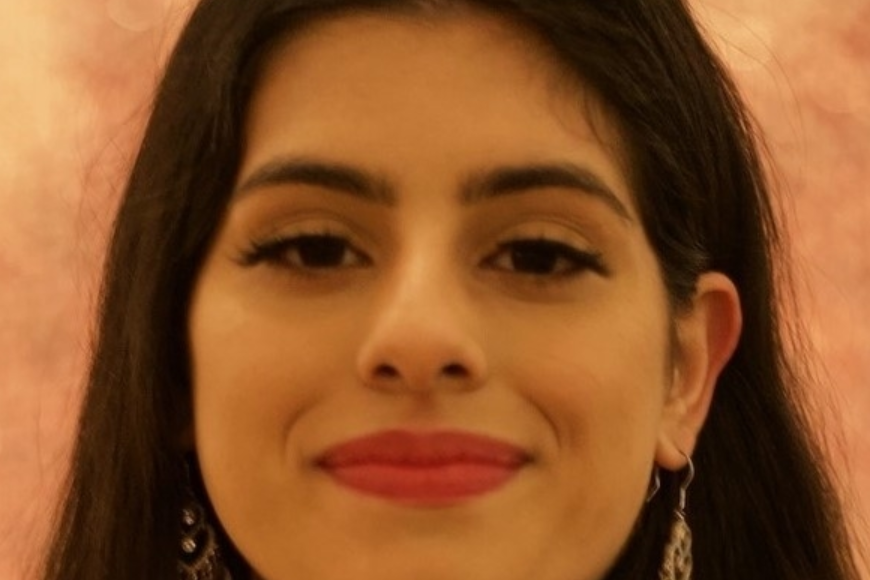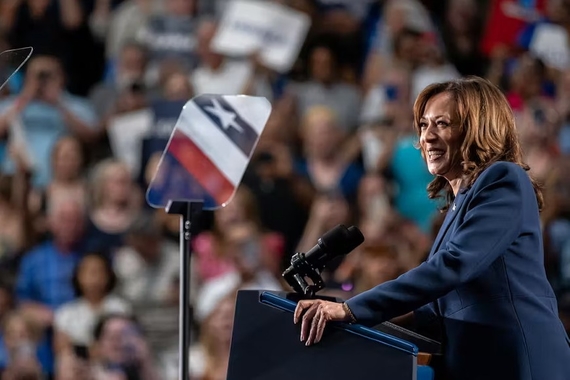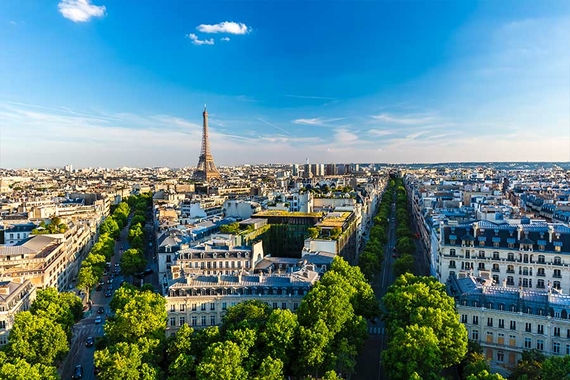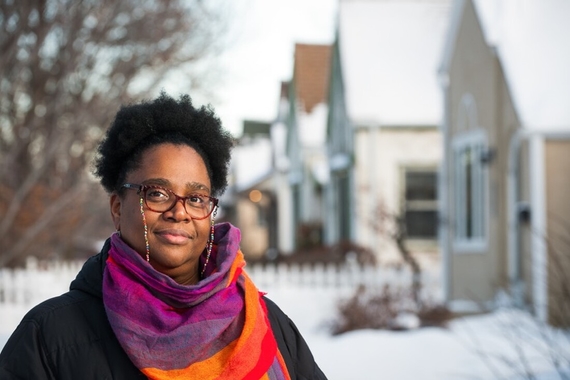Q&A with Truman Scholar Gurtaran Johal
How did it feel to be named a Truman scholar?
President Gabel and Professor Timothy Jones from the University Honors Program told me that I got the Truman Scholarship, and I was honestly really shocked. I was kind of overwhelmed with a lot of emotions. I was really happy that a lot of my hard work had paid off in terms of being awarded the scholarship, but I think more than that it showed that the Truman Foundation is looking for leaders who are really going to orient themselves towards being agents of change and pursuing careers in public service. Knowing that the Truman Foundation believed in me and believed in my abilities to give back to my community meant a lot.
Where are you from and what did you enjoy doing growing up?
Originally, I was born in Queens, New York then moved to Fargo, North Dakota when I was seven years old. I grew up with two brothers, so I was constantly in a pretty packed household. And, I would say I’ve always grown up in a family-oriented household so that really has shaped me into the person that I am today.
Growing up, I loved basketball and still do. I would say that sport really helped me understand what it means to work hard, what it means to dedicate yourself to a specific passion. I wasn’t particularly good, but I think that following the sport, following NBA college basketball, and going to games was probably one of the most enjoyable parts of growing up.
Additionally, when I was about 16 or 17 years old, I got into weightlifting and powerlifting. Since then, I’ve really enjoyed weightlifting. And so, I’m really interested in nutrition and health and how to live a healthy lifestyle. I’m also someone who just loves being active in general. I love being outdoors, biking, walking, and hiking. And then, I’m also someone who likes to travel. I like to experience new places and see new environments.
What are you studying and why did you choose your majors and minor?
I will be going into my final year at the University, so I’ll be a fourth-year student, and I am getting majors in both sociology and political science and minoring in Spanish.
I would say the reason that I was initially interested in political science and sociology really stems from high school. In high school, I was generally a pretty quiet person, so in order to build my public speaking skills, I decided to join the school’s speech, debate, and student congress teams.
I think that those activities really helped me not only find my voice but also allowed me to really understand how policy and how different mechanisms within our political systems and the institutions that are built in our country tend to isolate those who come from marginalized communities. I think that doing those activities and then also understanding that perspective is what sparked my interest in studying both political science and sociology.
I threw the Spanish major in for fun, but also in high school, I had a really great Spanish teacher. I was always really interested in Spanish culture, and Spanish is a language that is incredibly helpful in terms of working with individuals who come from different cultures and countries. So from that perspective, I wanted to build that fluency so that I’m a more well-rounded person and am able to have those conversations with people who come from different environments.
Why did you choose to study at the University of Minnesota?
I decided to come to the University of Minnesota because I personally was really intrigued by its mission of discovery. I’m someone who is always curious and who’s always looking to learn, and the University of Minnesota provided that outlet for me in terms of being able to constantly learn and grow as an individual.
Another main reason is because the University itself has a really large community of student groups in different environments. As someone who was coming from Fargo, North Dakota, who was constantly surrounded by people who have the same viewpoint and perspectives, I wanted to branch out and be part of a community where there are people who come from different perspectives in different communities. I wanted to be able to experience that and understand the world from those perspectives.
What clubs and organizations at the University have you been involved with?
I am heavily involved with the Minnesota Student Association. During my freshman year, I was a first-year intern, and during my sophomore year, I was the sexual assault task force chair. In that role, I did a lot of work at the University through the President’s Initiative to Prevent Sexual Misconduct as well as through Boynton Health in helping to implement the It Ends Here campaign.
I also helped bring legislation to the state legislature in Minnesota and did a lot of work around ensuring that there are resources in place for students who have gone through those experiences and need those resources in terms of whether they want to report or just want to have a safe resource to talk to.
During my junior year, I served as the speaker of forum, where I oversaw the legislative body of the organization―about 100 voting members. This upcoming year, I’ll be serving as a representative to the Board of Regents, where I will be a student voice to provide the board with the student perspective.
I was also involved with the College of Liberal Arts Student Board for about two years. And then, I did some more work within my college as a CLA section leader for about a year. I was a mentor to first-year students and graded their assignments for the CLA 1001 and 1002 courses.
When did you become interested in public service?
I grew up in an immigrant household, so one of the biggest parts of my life would be my religion―Sikhism. Growing up as a Sikh woman, I was taught this idea that women are deserving of equal rights and opportunities so that really sparked my interest in ensuring that women have equal rights within the country and globally. Additionally, I was taught this ideal of seva, which means your life should be rooted in service to others. Those were the main tenets that I grew up with as a child
Growing up in Fargo, I understood that one of the missions of my life, one of the main goals and visions that I had for myself, was to dedicate my life to ensuring that other people, women, and marginalized communities, have the opportunities they need to achieve their goals.
The moment that I realized I wanted to go into public service was the summer after my junior year of high school when I interned at the YWCA shelter in Fargo. There were a lot of women who were staying at the shelter who had gone through experiences of sexual violence and harassment, so the work that I did was centered around creating an educational program for these women because many hadn’t gone to college. I provided educational platforms for helping them understand more information around how to build resumes, health and wellness, and employment opportunities as well as basic life skills that will allow them to prosper going into the future.
That was when I realized not only was I interested in pursuing a career in public service and helping others in the work I do, but I was specifically interested in ensuring that my work was centered around those voices that are oftentimes not at the table and left out of the conversation. I wanted to provide a voice for those individuals so that’s when I realized I wanted to be a part of this community of individuals who are working to create a better world for everyone.
Why is it important to be passionate about public service?
It’s really important because I think in this day and age, people have become very pessimistic towards public service, towards politics, and towards how much change can really be achieved. And I think that students in my generation are really focused on community investment and ensuring that the community is empowered to create that change. That’s something that I continue to reiterate is that my generation kind of understands that aspect in terms of how we can really create change.
We’ve seen in the past how oftentimes, politicians and other public service leaders are pretty out of touch with how the community really feels, so I think that re-centering the voice around the community and ensuring that the community has those opportunities and resources to speak up is how we will be able to bring about that change. I think it’s very important for young people to get involved in terms of building a future where following generations will be able to build upon those paths to create a more equitable society for everyone.
What are your plans after graduation?
Through the Truman Foundation, there’s a summer institute where I will be able to go to Washington D.C. next summer as an intern. Then, I’m hoping to go through one of the Truman Foundation fellowship programs. It would be a 10-month fellowship where I continue working in D.C. in a public service-oriented position. Otherwise, I’m also planning to apply to the Fulbright Program.
Following that, I’m hoping to attend law school after a gap year or two to gain experience and see other areas that I’m interested in before going into a law career. Right now, I’m very interested in studying either criminal justice or public interest law.
Obviously, I don’t know what will happen in the future. You can be passionate about something, but you don't really know how that passion is going to pan out. So, I think I’m pretty open to the sorts of experiences that I have when I go into law and the experiences that I have when I graduate from college, and I am just hoping to orient a lot of the work that I do towards public service.



